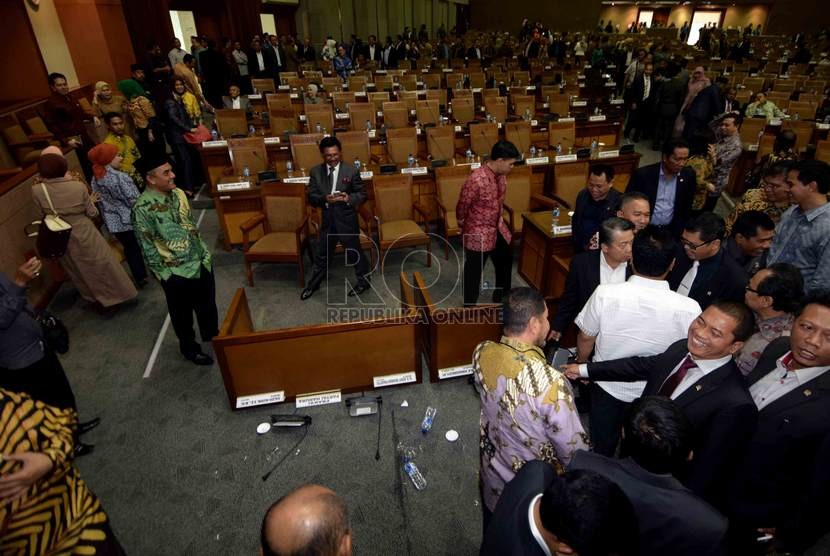REPUBLIKA.CO.ID, JAKARTA -- A political observer has urged the Red-White and the Great Indonesia coalitions to sit down and talk to settle their dispute.
"They should sit down and talk to find right solutions," senior political observer from state Indonesia University Arbi Sanit said here on Thursday in response to the current conflict between the two coalitions.
He noted if the conflict continued, the people would suffer the most, as it would hinder the House of Representatives (DPR) from carrying out tasks such as budgeting, legislation and oversight of ministries.
"If this power competition continues, it will become evident that the DPR members are irresponsible towards the mandate that the people have given them," he added.
The Red-White coalition, which supported Prabowo Subianto and his running mate Hatta Rajasa in the presidential election on July 9, has won the leadership of House Commissions following an election in which the Great Indonesia coalition that supported the Joko Widodo-Jusuf Kalla pair did not participate. The Great Indonesia Coalition, however, fully dominates the Executive power.
The Great Indonesia coalition consisting of the Indonesia Democratic Party of Struggle (PDIP), the National Democrat Party (Nasdem), the Nation Awakening Party (PKB) and the People's Conscience Party (Hanura) is planning to set up a rival DPR leadership.
Arbi remarked that by continuing their polemic, the DPR members would be obviously neglecting their duties.
According to him, power allocations in the parliament, which had led to the polemic, would eventually hinder the implementation of the programs of the Joko Widodo-Jusuf Kalla government.
He said, "the only solution is that they must sit down and talk and leave behind their egos."
Both camps must find a way out to build cooperation and be willing to give in for the greater interest although it would be at the cost of an agreement on position distribution.
"If bargaining for positions happens, it must be considered as part of the solution," he said, adding that if the dispute continued, the public would lose its confidence in them.


